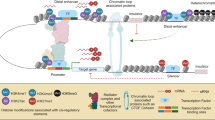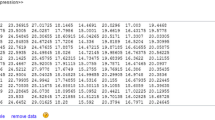Abstract
Serial analysis of gene expression (SAGE) allows for a quantitative, representative, and comprehensive profile of gene expression. We have utilized SAGE technology to contrast the differential gene expression profile in rat embryo fibroblast cells producing temperature-sensitive p53 tumor suppressor protein at permissive or non-permissive temperatures. Analysis of ∼15 000 genes revealed that the expression of 14 genes (P<0.001, ⩾0.03% abundance) was dependent on functional p53 protein, whereas the expression of three genes was significantly higher in cells producing non-functional p53 protein. Those genes whose expression was increased by functional p53 include RAS, U6 snRNA, cyclin G, EGR-1, and several novel genes. The expression of actin, tubulin, and HSP70 genes was elevated at the non-permissive temperature for p53 function. Interestingly, the expression of several genes was dependent on a non-temperature-sensitive mutant p53 suggesting altered transcription profiles dependent on specific p53 mutant proteins. These results demonstrate the utility of SAGE for rapidly and reproducibly evaluating global transcriptional responses within different cell populations.
Similar content being viewed by others
Author information
Authors and Affiliations
Rights and permissions
About this article
Cite this article
Madden, S., Galella, E., Zhu, J. et al. SAGE transcript profiles for p53-dependent growth regulation. Oncogene 15, 1079–1085 (1997). https://doi.org/10.1038/sj.onc.1201091
Received:
Accepted:
Issue Date:
DOI: https://doi.org/10.1038/sj.onc.1201091
- Springer Nature Limited
Keywords
This article is cited by
-
The multiple mechanisms that regulate p53 activity and cell fate
Nature Reviews Molecular Cell Biology (2019)
-
Differential expression analysis for paired RNA-seq data
BMC Bioinformatics (2013)
-
Serial analysis of gene expression reveals differential expression between endometriosis and normal endometrium. Possible roles for AXL and SHC1 in the pathogenesis of endometriosis
Reproductive Biology and Endocrinology (2008)
-
A quantitative view of the transcriptome of Schistosoma mansoni adult-worms using SAGE
BMC Genomics (2007)




